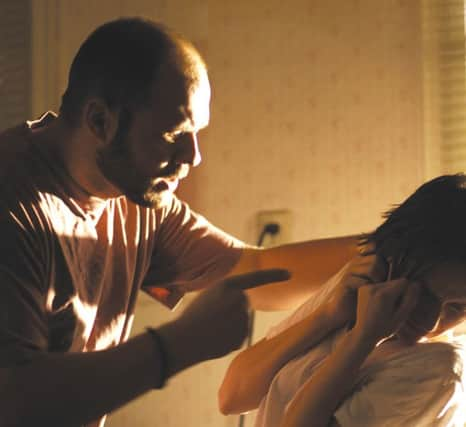More than seven in 10 Northamptonshire arsonists have witnessed domestic violence


The aim is to interview children and young people aged between five and 18 who have been actively involved in arson or fire setting, as well as their parents or carers.
Jane Callaghan, a professor of psychology at the University of Northampton, which is working with the fire service on the study, said young people who experience domestic violence look for ways to cope and ‘self-soothe’ - and flames seem to uniquely satisfy both feelings.
Advertisement
Hide AdAdvertisement
Hide AdShe said: “Looking at fire can be a very calming experience.
“For instance, fire is sometimes used within meditative practice, and if you look at a flame it can be something very soothing. On the other hand, fire is also exciting, risky and dangerous.
“With fire setting, you have the double effect of it being exciting on one hand and calming on another.
“Our hunch is that it might be a way of managing the emotional fall-out of domestic violence.”
Advertisement
Hide AdAdvertisement
Hide AdThe arson task force said it has already had 36 referrals since the beginning of April where domestic violence and arson may be linked.
Previous cases have seen a child set fire to their bedroom curtains and another seven-year-old set fire to a duvet while her mum was under it.
The university researchers are trying to understand what motivates children who set fires and find safer outlets.
They are being assisted by the joint Arson Task Force, which is run by Northamptonshire Police and Northamptonshire Fire & Rescue Service.
Advertisement
Hide AdAdvertisement
Hide AdThe ATF already carries out intervention work with both children and adults who are known to be fire setters or arsonists, and it is believed that at least 75 per cent of these people have domestic violence in their backgrounds.
Their work shows that children as young as five have been involved in fire setting as a cry for help, having experienced violence in their family.
Shaun Johnson, of the task force, said: “We have seen from working with adult offenders how violent arson can be.
“If early intervention had been available in their lives, could we have prevented these serious and costly crimes?”
The results are so far encouraging.
Advertisement
Hide AdAdvertisement
Hide AdRecently the task force did some work with a young girl who set fire to a derelict building not knowing there was a homeless person inside sleeping.
They died of smoke inhalation and the young girl was charged with manslaughter.
Mr Johnson’s team carried out some interventions while she was serving her sentence and arranged for her to do further work with a fire crew to boost her confidence as part of her sentence plan.
She was released from custody last year, is now in full-time employment and does voluntary work with a fire authority deflecting young children away from arson by telling her story.
Advertisement
Hide AdAdvertisement
Hide AdWhat is more, of the 35 who have so far undergone interventions only one has returned to fire setting.
Mr Johnson said: “There have been some great successes and they get quite emotional.
“You get kids throwing their arms round their mum and crying, promising never to do it again.
“It can bring people closer together again.”
Members of the public are invited to come forward and volunteer to take part in the research if they have suffered domestic violence and have witnessed their children fire setting.
These volunteers are asked to email researcher Joanne Alexander at: [email protected]